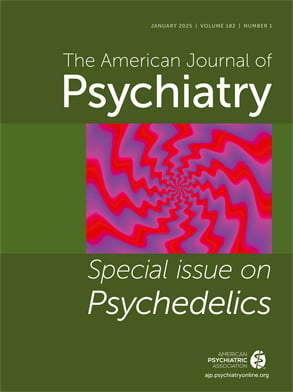To The Editor: Dr. Kelly’s comments highlight the importance of repeated exposure to gruesome situations in the risk of PTSD and provide a greater understanding of the personal experiences of the firefighters who responded to the World Trade Center disaster. He suggests that our study failed to assess a key risk factor for PTSD: the handling of human remains while working at the World Trade Center site. It is true that this was not included in our definition of witnessing horror. Our assessment of witnessing horror focused on events that happened on the morning of September 11, 2001, which we referred to in our article as “within-disaster experiences.” These exposures were distinguished from work experiences because they most likely represent a higher degree of life threat. In our study, handling body remains was indirectly assessed as a part of work experiences by asking individuals whether they performed hand digging and search and rescue activities while working at the site.
In the study’s full cohort of rescue recovery workers and volunteers, hand digging was indeed associated with increased risk of developing PTSD (adjusted odds ratio=1.2 [95% confidence interval=1.1–1.4]), whereas search and rescue was not. However, neither hand digging nor search and rescue significantly increased the risk of PTSD in firefighters. We understand that this is a relatively crude assessment of the handling of gruesome body remains, and thus we cannot definitively determine the impact of handling body remains from this study. Within a clinical setting, it may be possible to gain a greater understanding of an individual’s personal reaction to gruesome experiences than in a quantitative telephone survey. While standardized surveys do not provide the opportunity to ask more detailed or individualized questions regarding particular exposures, they are effective at assessing a consistent set of exposures across large samples.
The primary goal of our study was to examine differences in PTSD prevalence among occupation groups and to determine whether PTSD risk was associated with within-disaster and work-related experiences. We were able to determine that performing rescue activities outside of one’s training was an important risk factor for PTSD, and rates were higher across different occupations, independent of experiences. These findings suggest that disaster preparedness training may reduce the psychological burden in future responders. The impact of personal experiences, as described by Dr. Kelly, can only be assessed by clinicians. Their insight, in collaboration with epidemiological evidence, is critical to improving treatment and prevention of PTSD.

